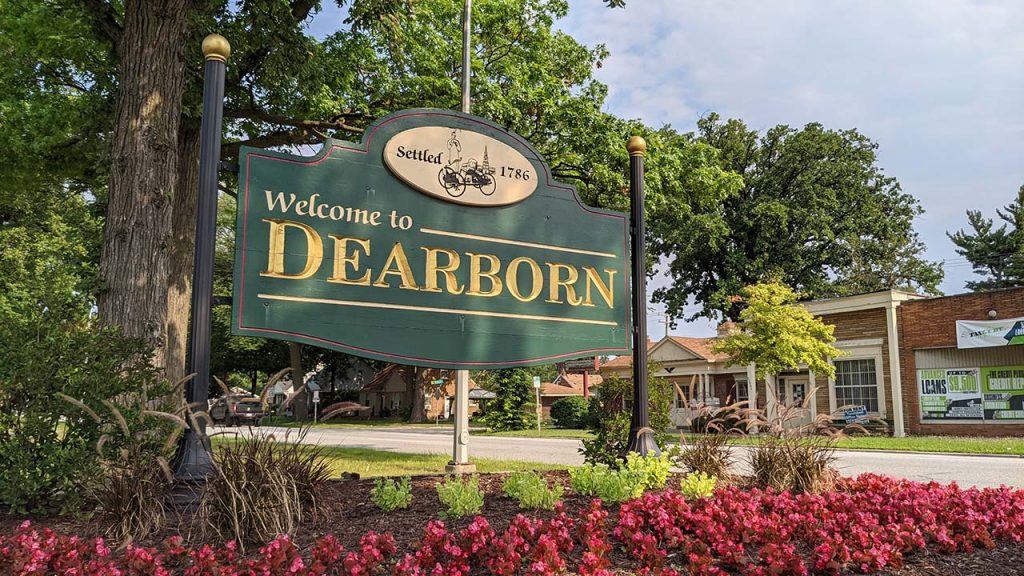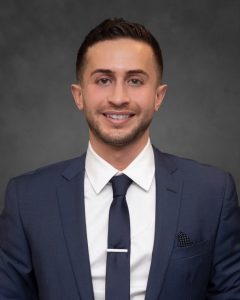Environmental health is top priority for new Dearborn Department of Public Health
The City of Dearborn is “piloting a new model for what public health municipal governance looks like,” says Ali Abazeed, the Director of Public Health for the city of Dearborn.

Environmental health is the biggest priority for the new Dearborn Department of Public Health.
“This administration’s largest focus is thinking about how we elevate the conditions of people across Dearborn primarily in the south and east sides of town where they are in closer proximity to factory stacks and industrial corporation,” says Ali Abazeed, the Director of Public Health for the city of Dearborn.
Another focus is mental and behavioral health, he says. “We can tailor our programs to the unique needs of our demographics. Dearborn is a pretty diverse town. We all talk about having the largest Arab American concentration in North America and that’s true, but our community is so much larger than that. And the needs across sociopolitical status, socioeconomic status, sociohistorical status, are quite diverse.”

Serving a diverse population means a multifaceted approach that includes all of city government, he says.
“Our Parks and Recreation, our Public Works, our water and sewage, our economic development teams, our transportation teams — all of these teams within our local government are thinking with a health lens,” Abazeed says. “And the question that they’re asking themselves is not only what is the problem to solve, but how will this impact the health of Dearborn residents and the communities in which they live, learn, work and play?
Abazeed, a Dearborn native, spent the past five years in Washington, D.C., working at the National Institutes of Health, primarily with the National Cancer Institute. But when Mayor Abdullah Hammoud reached out to Abazeed to launch the new health department in his hometown, he says the opportunity was compelling. He says Dearborn is only the second city in the state to have a formal health department.
Listen: How public health is evolving.
“What we’re doing here is not only investing in a public health department, but we’re also piloting a new model for what public health municipal governance looks like,” Abazeed says.
The pandemic brought new public health challenges amid a time when public health infrastructure over the past four decades has been gutted, he says.
“This administration emphasizes that the best way that we can move forward is by investing in public health and investing in in the communities and people’s conditions,” Abazeed says. “No longer will our decisions only go through economic analysis, cost benefit analyses. They’re also going through health impact assessments. No longer will we think about a sort of vacant plot of land and think, ‘Well, how did developers come here and turn this into a profit?’ We are also now thinking about how we turn those spaces into green spaces and walkways for the residents of Dearborn.”
The city’s health department was established earlier this year to modernize the approach to public health, which has evolved over the years, from “public health 1.0” established in the early 20th century that focused on sewage systems, hygiene and vaccinations, to “public health 2.0 and 3.0.”
“1.0 is the idea of how do we prevent infectious disease from happening, which was the primary killer in the 20th century,” Abazeed says. “And then when we got to the 1980s, realizing that we’re moving beyond just infectious diseases, we’re moving beyond that sense of mortality and behavioral issues are becoming more of a focus for us.”
“Public health 2.0 and 3.0,” Abazeed explains, is the idea that health problems are the result of not only individual choices but also environmental factors like climate change, transportation and infrastructure.
“If we accept that our health is the byproduct of a lot of those larger societal issues, then it requires us to take a multipronged approach to tackling health in all policies, and that’s what 2.0, 3.0 emphasizes, is the idea of institutionalizing health considerations into everything that we do as a city government,” Abazeed says.
Trusted, accurate, up-to-date.
WDET strives to make our journalism accessible to everyone. As a public media institution, we maintain our journalistic integrity through independent support from readers like you. If you value WDET as your source of news, music and conversation, please make a gift today.
